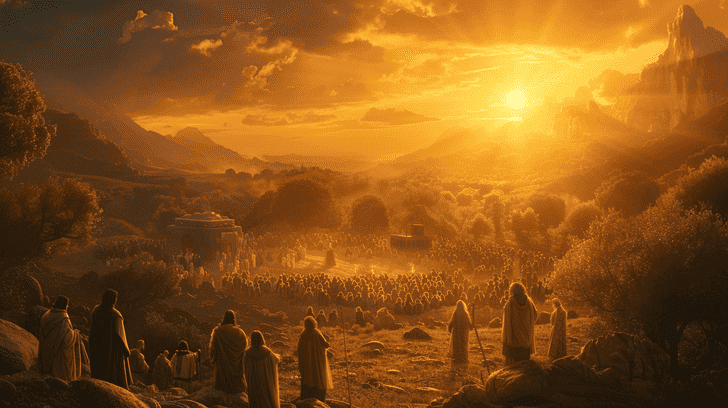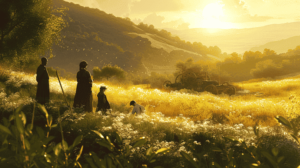Are you intrigued by the historical origins of Sabbath and Sunday observance in early Christianity? As we explore this topic, we will uncover the subtle shifts and influences that shaped the significance of these two days within the Christian faith.
Initially, all Christians recognized the importance of the true Sabbath and diligently observed its precepts.
However, a cunning force worked to redirect attention towards Sunday, elevating it as a festival in honor of Christ’s resurrection.
In the fourth century, Emperor Constantine further solidified the prominence of Sunday, making it a public festival throughout the Roman Empire.
Join us on this journey as we shed light on the ongoing battle between the true Sabbath and Sunday observance in early Christianity.
Early Christian Observance of the Sabbath
How did early Christians observe the Sabbath and what significance did it hold for them?
Early Christian practices regarding the Sabbath were rooted in their Jewish heritage and the teachings of Jesus and the apostles.
They continued to honor the Sabbath as a day of rest and worship, keeping the Sabbath law established in the Old Testament. However, there were also changes in Sabbath observance within the Christian community.
Sunday worship began to gain significance as a day of celebration, commemorating the resurrection of Christ.
While the Sabbath remained sacred, Christians started to observe Sunday as a joyous festival, thus creating a distinction between the two days. Additionally, Christian festivals, such as Easter, became important occasions for worship and reflection.
Sunday as a Festival in Honor of Christ’s Resurrection
As the early Christians continued to honor the Sabbath as a day of rest and worship, they also began to celebrate Sunday as a joyous festival in honor of Christ’s resurrection. This shift in religious observance had historical origins in the early centuries of Christianity.
Theological implications arose as the resurrection of Christ became a central pillar of Christian belief, and Sunday became a day to commemorate this event. The cultural significance of Sunday as a festival grew as it became a day of religious services and recreation.
The symbolism of resurrection intertwined with the celebration of Sunday, representing the victory of Christ over sin and death. This shift also had an impact on Christian worship, as Sunday gradually gained prominence and the Sabbath became marginalized.
Shifts in Sabbath and Sunday Observance
Shifts in Sabbath and Sunday observance occurred as early Christianity progressed, leading to changes in the way these days were observed and prioritized by Christians.
These changes were influenced by a variety of factors, including historical context, theological implications, cultural impact, and resistance and persecution.
As the early Christians sought to distinguish themselves from Judaism, they began to prioritize Sunday, the day of Christ’s resurrection, as a day of worship and celebration.
This shift was further solidified with the adoption of Sunday as a public festival by Emperor Constantine in the fourth century.
However, while many Christians began to observe Sunday, there were still those who held onto the Sabbath as the holy day of the Lord.
Constantine’s Decree and the Unification of Christianity and Paganism
The shift in Sabbath and Sunday observance during early Christianity eventually led to a significant event in the fourth century: Emperor Constantine’s decree and the unification of Christianity and paganism.
Constantine, in an effort to unite his pagan subjects and Christians, issued a decree making Sunday a public festival throughout the Roman Empire. This day, already revered by pagans and honored by Christians, was seen as a way to promote the acceptance of Christianity by pagans.
The papal influence played a significant role in this unification, as ambitious prelates and world-loving churchmen supported the merging of pagan practices with Christian worship. As a result, the true Sabbath, observed by Sabbath keepers, was persecuted and denounced as a relic of Judaism.
The unification of Christianity and paganism, spearheaded by Constantine’s decree, marked a turning point in the observance of Sabbath and Sunday.
The Papal Influence and the Persecution of Sabbath Keepers
The influence of the papacy during the early centuries of Christianity brought about a harsh reality for Sabbath keepers.
They faced persecution and denunciation for their observance of the true Sabbath. Under papal authority, the Sabbath persecution was a result of religious conflict between the early Christians and the emerging power of the Roman Catholic Church.
The papacy sought to consolidate its power and control over religious practices, leading to the suppression of Sabbath keepers.
This persecution not only restricted the religious freedom of these individuals but also created a hostile environment for those who adhered to the true Sabbath.
The papal influence and persecution of Sabbath keepers played a significant role in shaping the religious landscape of early Christianity. It ultimately led to the dominance of Sunday observance and the marginalization of Sabbath observance.
Conclusion
In conclusion, while the origins of Sabbath and Sunday observance in early Christianity may be complex and intertwined with historical and societal factors, it’s important to recognize the ongoing battle between the true Sabbath and Sunday observance.
Despite the shifts and influences throughout history, the significance of the Sabbath remains a key aspect of Christian faith. By understanding the historical progression, we can better appreciate the importance of preserving and upholding the true Sabbath in our own lives.
The Bible is clear about the real Sabbath – it is on the seventh day known today as Saturday. The Sabbath was never changed by God or Jesus nor the apostles. There is not a single verse in the Bible to support this change.
We are living in the end times, and the issue of the real Sabbath will come more and more to the surface.
Prophecy tells us in Revelation 13 that a union of Church and State will take place and force all to worship on a day that was not blessed and sanctified by God.
Everyone must make a decision. This final controversy about the Sabbath and their choice will decide their salvation.
Do we listen to man or God? Everyone must make a choice.
References
The Great Controversy by Ellen White – Chapter 3 – An Era of Spiritual Darkness
My Letter To A Sunday Keeper – Sabbath Documentary

The Days of Noah – Powerful Documentary (Video Format)

Bible Studies – Written Format







